Insider Tips: How to Start a Vacation Rental Business Without Owning Any Property
Learn how to make money in vacation rentals without owning property through strategies like Airbnb arbitrage, co-hosting, and offering unique experiences.
September 13, 2024
Corey
%20(1).png)
Key Highlights
- You don't need to own a property to generate income from Airbnb.
- Explore diverse opportunities like property management, co-hosting, or Airbnb arbitrage and consider offering unique experiences.
- Leverage rental arbitrage, but ensure compliance with local regulations and lease agreements.
- Market your skills and services, such as cleaning, photography, or marketing, to other hosts.
- Stay updated on industry trends and utilize technology to streamline operations for success in the vacation rental industry.
Unlock Airbnb Profits: The Property-Less Path
The vacation rental industry is booming, and while owning and managing properties is a popular option, it’s not the only way to make money on Airbnb. In fact, some people actually prefer the option of opening an Airbnb business without being a homeowner.
.png)
This blog post explores creative ways to launch profitable Short-Term Rental businesses without owning property. Whether you’re seeking extra income or a full-time venture, discover the diverse opportunities within the vacation rental realm and how to leverage them effectively.
The Rise of Airbnb Co-hosting: A Lucrative Opportunity for Non-Owners
.png)
The rise of Airbnb co-hosting presents a lucrative opportunity for non-owners to thrive in the vacation rental industry. By leveraging the Airbnb platform and co-host model, individuals can participate in the vacation rental industry without owning property. This innovative approach allows aspiring real-estate investors to generate income by managing properties on behalf of owners, splitting the risks and responsibilities, and providing a great way to gain valuable experience and income.
Understanding the Airbnb Platform & Co-Host model
To comprehend the Airbnb platform and co-host model, it's essential to grasp the dynamics of collaborative hosting. Airbnb offers an avenue for property owners to enlist co-hosts, sharing responsibilities and earnings. As a co-host, you assist in managing listings, guest interactions, and property maintenance, fostering a symbiotic relationship with the property owner. This model allows non-owners to engage in the vacation rental industry without property ownership, leveraging partnerships and maximizing returns through strategic collaborations.
Why You Don't Need to Own Property to Profit - the Airbnb arbitrage model
Utilizing the Airbnb arbitrage model, individuals can profit without owning property. This innovative approach involves leasing a property and then renting it out on Airbnb for a higher price, bridging the gap to generate revenue. By understanding market demands and optimizing rental strategies, one can effectively capitalize on this method to earn income without the upfront costs of property ownership. This model opens doors for aspiring entrepreneurs to tap into the lucrative vacation rental industry and build a successful Airbnb business without having to take on the risk of owning properties themselves.
Preparing to Earn on Airbnb without Property Ownership
Before diving into the world of Airbnb entrepreneurship, it's essential to equip yourself with the necessary knowledge and tools. Research your local market, understand the legal requirements and regulations, and familiarize yourself with Airbnb's platform and policies. This groundwork ensures a smoother start and helps you navigate potential challenges effectively.
Additionally, consider the specific skills or services you bring to the table and identify your target audience. A well-defined niche and a clear understanding of your value proposition will set you apart in a competitive market.
Essential Tools and Resources for Getting Started
.png)
Once you've chosen your niche, gather the essential tools and resources to streamline your operations. These might include a reliable laptop, a smartphone with a high-quality camera, and a professional-looking website or social media presence.
Consider using a comprehensive financial management software like Clearing to streamline the financial operations of your Short-Term Rental business. Track income from various sources, including Airbnb, and integrate with relevant platforms like your property management software, cleaning and turnover solution, and upsell/operational tools. Efficiently manage expenses, categorize transactions, and stay organized with features that keep you ahead of your month's end.
If you are handling bookings and guest interactions directly, consider investing into a property management software for efficient vacation rental management. Consider outsourcing tasks like cleaning or laundry to local businesses to save time and maintain quality service. Familiarize yourself with the online travel agency's features to ensure usage to the highest level, optimizing the number of bookings you receive through those channels. There are tools all around the vacation rental industry that can be useful to a specific property manager, co-host, or arbitrage operator, so be sure to do your research and choose the tech stack that will benefit your business.
Building Your Network: Partners and Support
.png)
Networking is essential for any business, and Short-Term Rental property management is no exception. When you don't own property, building relationships with various stakeholders can significantly enhance your operations and increase your chances of success.
Here's how networking can benefit your property-less vacation rental business:
Finding Suitable Properties:
Property Owners: Connect with property owners who may be interested in renting out their spaces for Short-Term Rental usage.
Real Estate Agents: Establish relationships with local real estate agents who can help you find suitable properties or connect you with potential landlords.
Property Management Companies: Meet with property management companies that specialize in Short-Term Rentals to leverage their experience and learn from their business.
Support and Advice:
Expert Support: Navigate the technical intricacies and legal complexities of your Short-Term Rental business with ease by getting closer to experts, and listening to their advice.
Community: Join online communities or forums where you can connect with other hosts, share experiences, and seek advice.
Mentors: Find experienced hosts who can offer guidance and mentorship.
Outsourcing Services:
Cleaning Services: Build relationships with reliable cleaning companies to ensure your vacation rental properties are always spotless.
Maintenance Services: Connect with skilled maintenance professionals who can handle repairs and upkeep.
Laundry Services: Partner with local laundromats or laundry services to offer convenient laundry options for your guests.
Marketing and Promotion:
Local Businesses: Collaborate with local businesses (e.g., restaurants, attractions) to offer package deals or discounts to your guests.
Influencers: Partner with social media influencers to promote your Airbnb listings and reach a wider audience.
Local Regulations:
Government Officials: Network with local government officials or policy makers to stay informed about regulations and licensing requirements for Short-Term Rentals in your jurisdiction.
Community Associations: Engage with local community associations to understand any specific guidelines or restrictions that vacation rental operators must consider.
Step-by-Step Guide to Making Money in the Short-Term Rental Industry as a Non-Owner
Earning revenue with a Short-Term Rental as a non-owner involves a strategic approach. From identifying lucrative markets to crafting enticing listings, this step-by-step guide unveils the key elements for success.
Let's explore the practical steps to turn your property management aspirations into reality.
Step 1: Identifying Profitable Markets
The success of your venture hinges on choosing the right market. Research and analyze different locations to identify areas with high demand for Short-Term Rentals. Consider factors like tourist attractions, local events, and seasonal fluctuations in occupancy rates.
Utilize tools like AirDNA to gain insights into average daily rates, occupancy trends, and revenue potential in specific areas. Compare these metrics to the national average and identify areas with strong rental yields to help you pinpoint a lucrative market.
Step 2: Securing Properties through Rental Arbitrage
Once you've chosen your market, explore rental arbitrage opportunities. This strategy involves leasing a property and subletting it, aiming to generate a profit margin. When approaching landlords, be transparent about your intentions and ensure your lease agreement permits subletting for Short-Term Rentals.
Carefully calculate all costs, including rent, utilities, cleaning fees, and platform fees, to determine your break-even point and potential profitability. Maintaining clear communication with your landlord and providing excellent care for their property will foster a mutually beneficial relationship.
Step 3: Crafting Appealing Listings
.png)
Your listing on an online travel agency, like Airbnb, serves as your virtual storefront, captivating potential guests and enticing them to book. Invest in high-quality photography to showcase your property's best features and create a visually appealing experience for the potential guest.
Craft a compelling description that highlights the property's unique selling points, amenities, and proximity to local attractions. Utilize relevant keywords to improve your listing's visibility in search results.
Step 4: Managing Bookings and Guests
Effective communication is paramount throughout the guest journey. Respond promptly to inquiries, provide detailed check-in instructions, and proactively address any guest concerns.
If you manage multiple properties, consider using a property management software to streamline your booking management using tools like a centralized inbox. These tools help optimize tasks like messaging, cleaning schedules, and revenue collection.
By going above and beyond to create a seamless and enjoyable guest experience, you'll garner positive reviews, enhancing your listing's reputation.
Step 5: Automating and Scaling Your Financial Operations
As your Short-Term Rental business expands, explore ways to automate tasks and optimize efficiency across the business. Consider using automated bookkeeping solutions and accounting software to help ensure you always stay ahead of your finances.
Remember that continuous evaluation and adaptation are vital in the vacation rental industry. Embrace technology, seek opportunities to improve your processes, and stay informed about industry trends to ensure sustainable growth.
Diverse Strategies to Maximize Your Rental Earnings
Diversifying your income streams within the online travel agency ecosystem is key to maximizing your earnings potential. From offering exceptional co-hosting services to creating unique experiences, explore options that complement your skills and interests.
Becoming an Exceptional Co-host or Property Manager
Position yourself as a reliable partner for Airbnb hosts seeking assistance with their properties. Offer your expertise in managing bookings, guest communication, cleaning, and maintenance.
Acquiring a property manager's license can enhance your credibility and expand your client base. Tailor your services to meet the specific needs of hosts in your target market.
Whether you opt for co-hosting or full-scale property management, consistently delivering exceptional service will lead to repeat clients and referrals, generating a steady stream of extra income.
Offering Unique Experiences
Tap into the growing market for experiential travel by crafting unique experiences for your guests. Share your passions and skills with travelers seeking authentic, local activities.
Offer guided tours showcasing hidden gems in your city, host workshops teaching culinary skills, or conduct yoga sessions in picturesque settings. Leverage your creativity to design one-of-a-kind offerings that resonate with travelers seeking more than just a place to stay.
Providing Value-Added Services for Guests
.png)
Elevate the guest experience and generate additional revenue by offering value-added services. Partner with local businesses to provide discounted rates on activities, transportation, or dining experiences.
Consider offering personalized services such as grocery delivery, private chef experiences, or in-home spa treatments. By anticipating and catering to guests' needs beyond standard accommodations, you'll create a memorable stay that encourages positive reviews and repeat bookings.
Legal and Financial Considerations for Airbnb Entrepreneurs
Before launching your Airbnb business, familiarize yourself with local regulations, tax obligations, and insurance requirements.
Adhering to legal frameworks ensures a smooth operation and protects you from potential liabilities.
Navigating Local Regulations and Taxes
Research and understand the specific rules governing Short-Term Rentals in your city or state. Some areas have restrictions on rental durations, occupancy limits, or licensing requirements.
Consult with a tax professional to determine your tax obligations as an Airbnb entrepreneur. Keep accurate records of your income and expenses to facilitate tax filing. By leveraging tools like Clearing, tax preparations can be vastly simplified and streamlined, ensuring you have all the information you need to close the year. To learn more about Clearing, book a demo today!
Optimizing Your Finances for Growth
As your Short-Term Rental business thrives, explore financing options to fuel your expansion plans. Secure a business line of credit to cover operational costs or consider seeking investment to scale your operations more rapidly.
Continuously analyze your financial performance, identifying areas for improvement and reinvesting profits strategically to support sustainable growth. Exploring innovative business models or expanding your service offerings can create new revenue streams and strengthen your market position.
Building Your Property-Free Rental Empire
Starting a Short-Term Rental without owning property opens up a world of possibilities for aspiring real-estate entrepreneurs. By leveraging rental arbitrage, crafting appealing listings, and providing exceptional guest experiences, you can thrive in this lucrative opportunity.
Remember, building a strong network, understanding local regulations, and optimizing your finances are key steps to success. With dedication and strategic planning, you can maximize your earnings and scale your operations effectively.
Take the Leap Today: Embark on your journey toward financial independence, with tools like Clearing that scale with your business.
Clearing is a Financial Technology Company, not a bank.

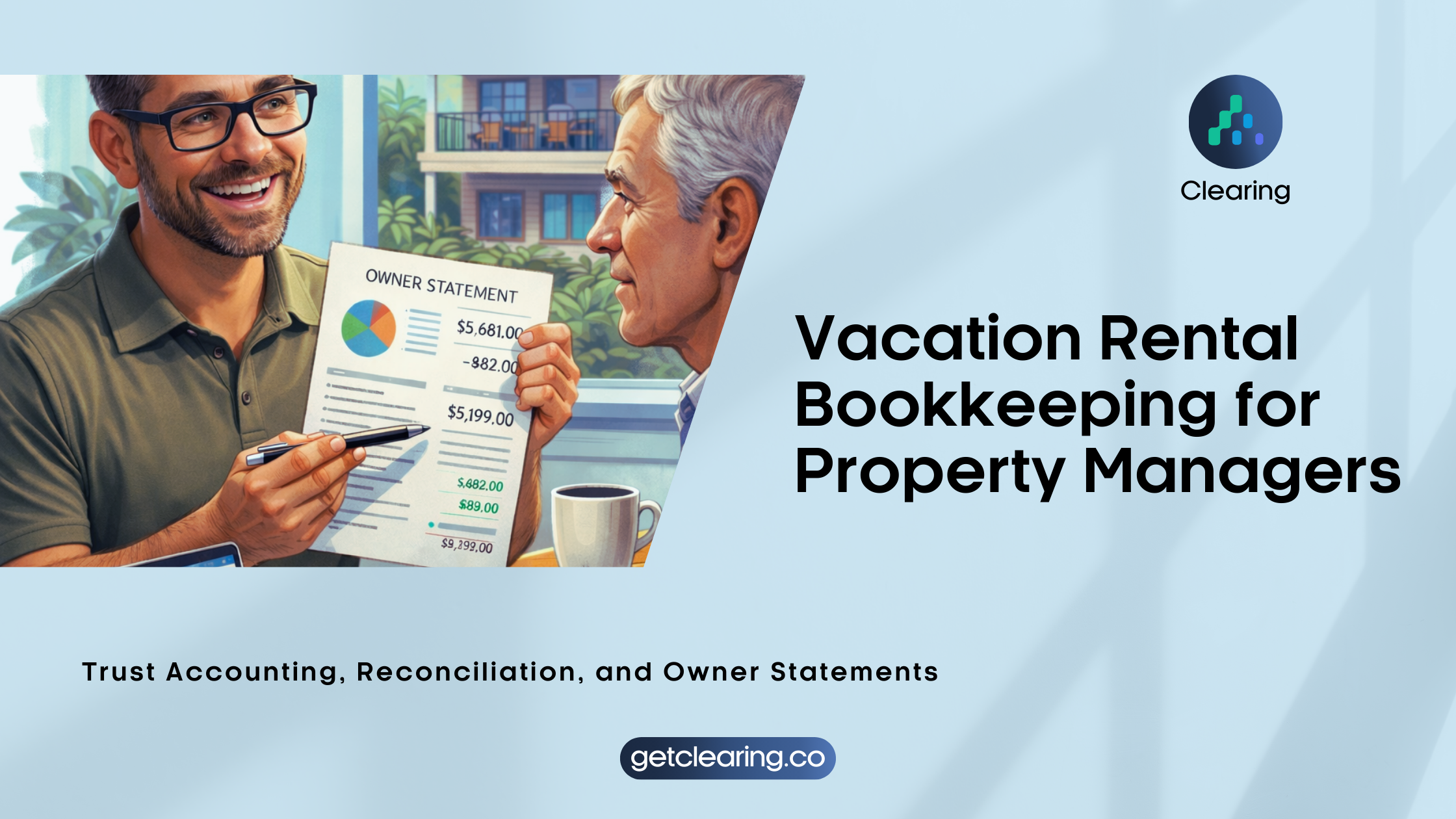
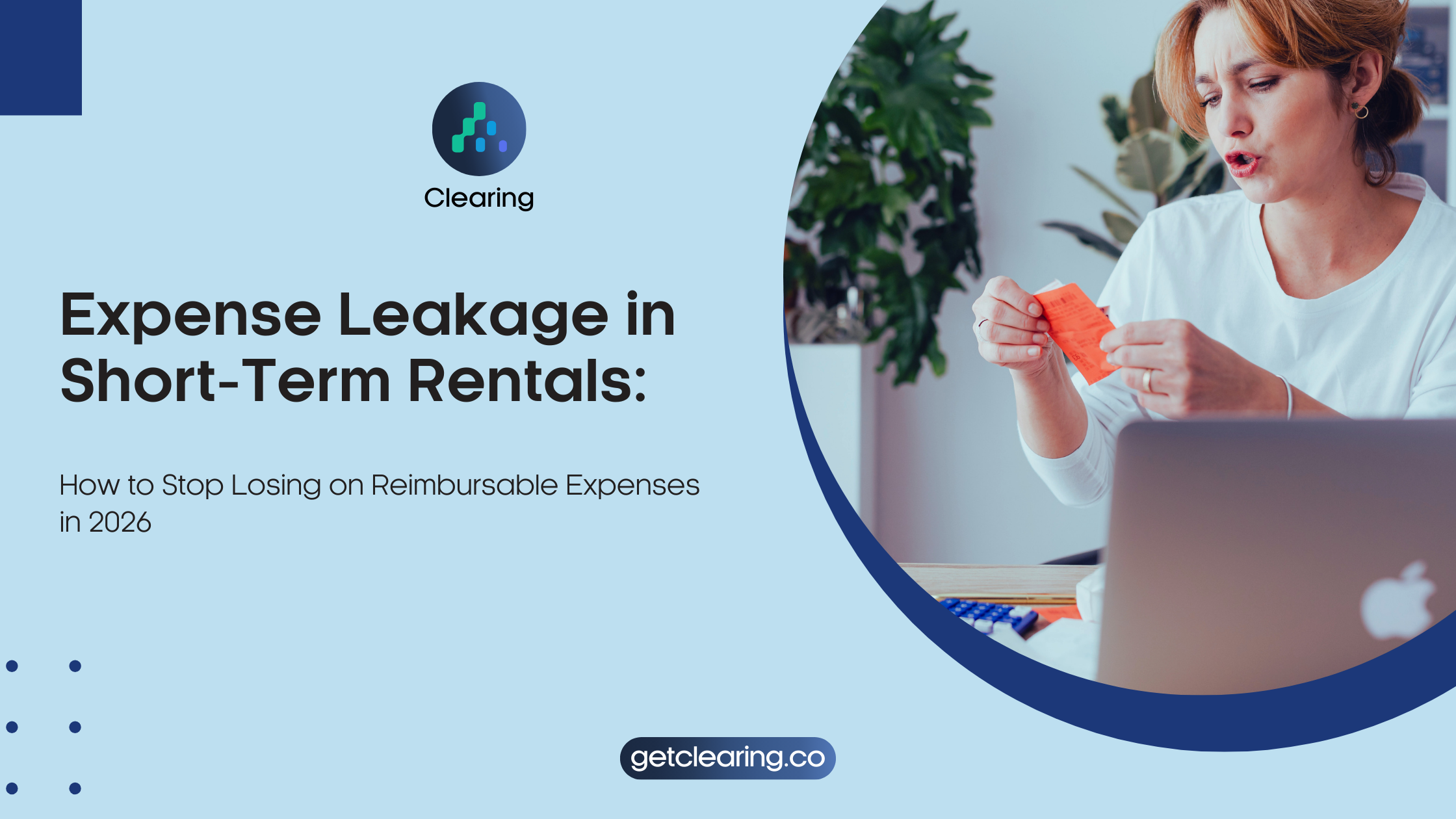


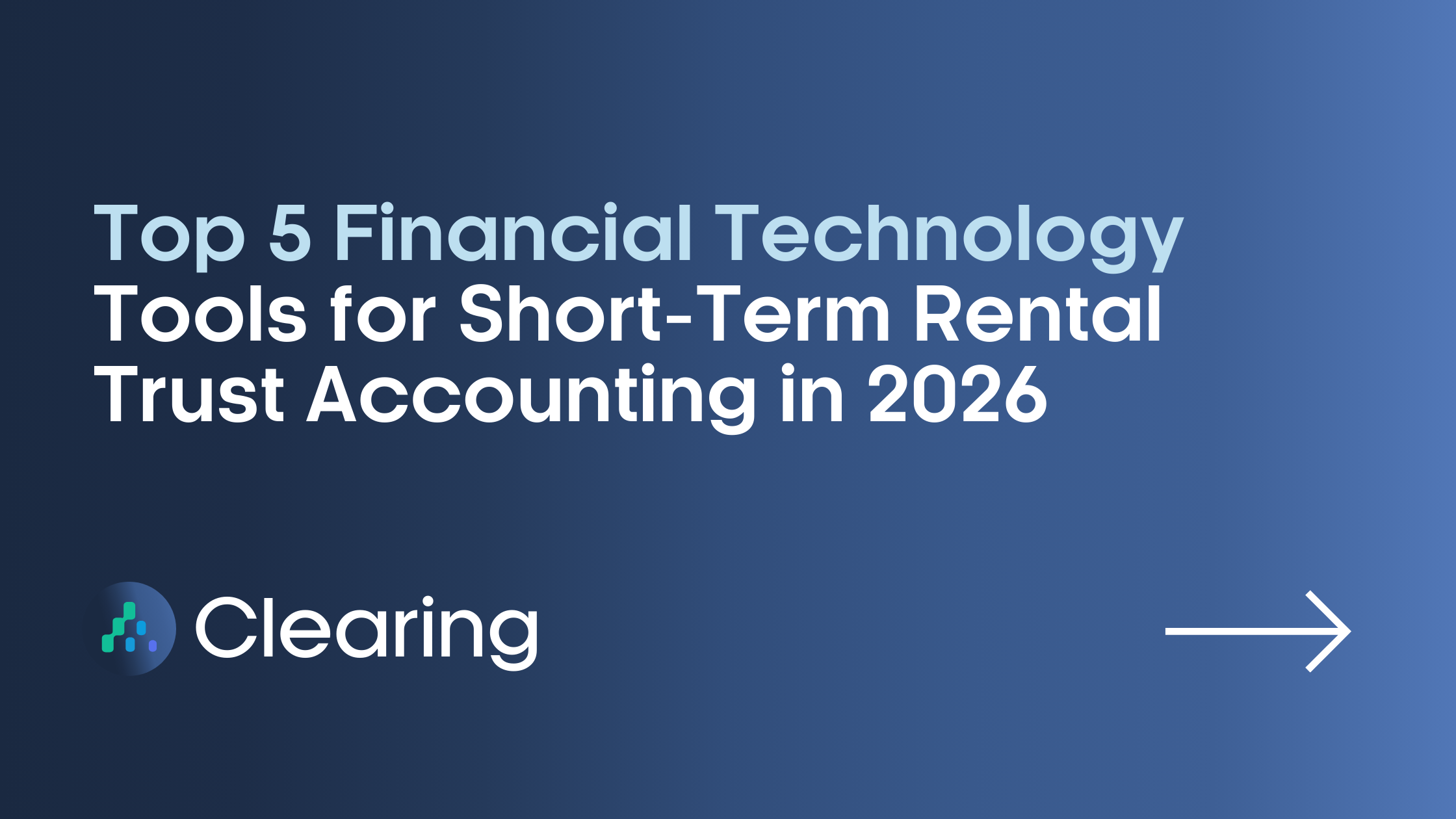
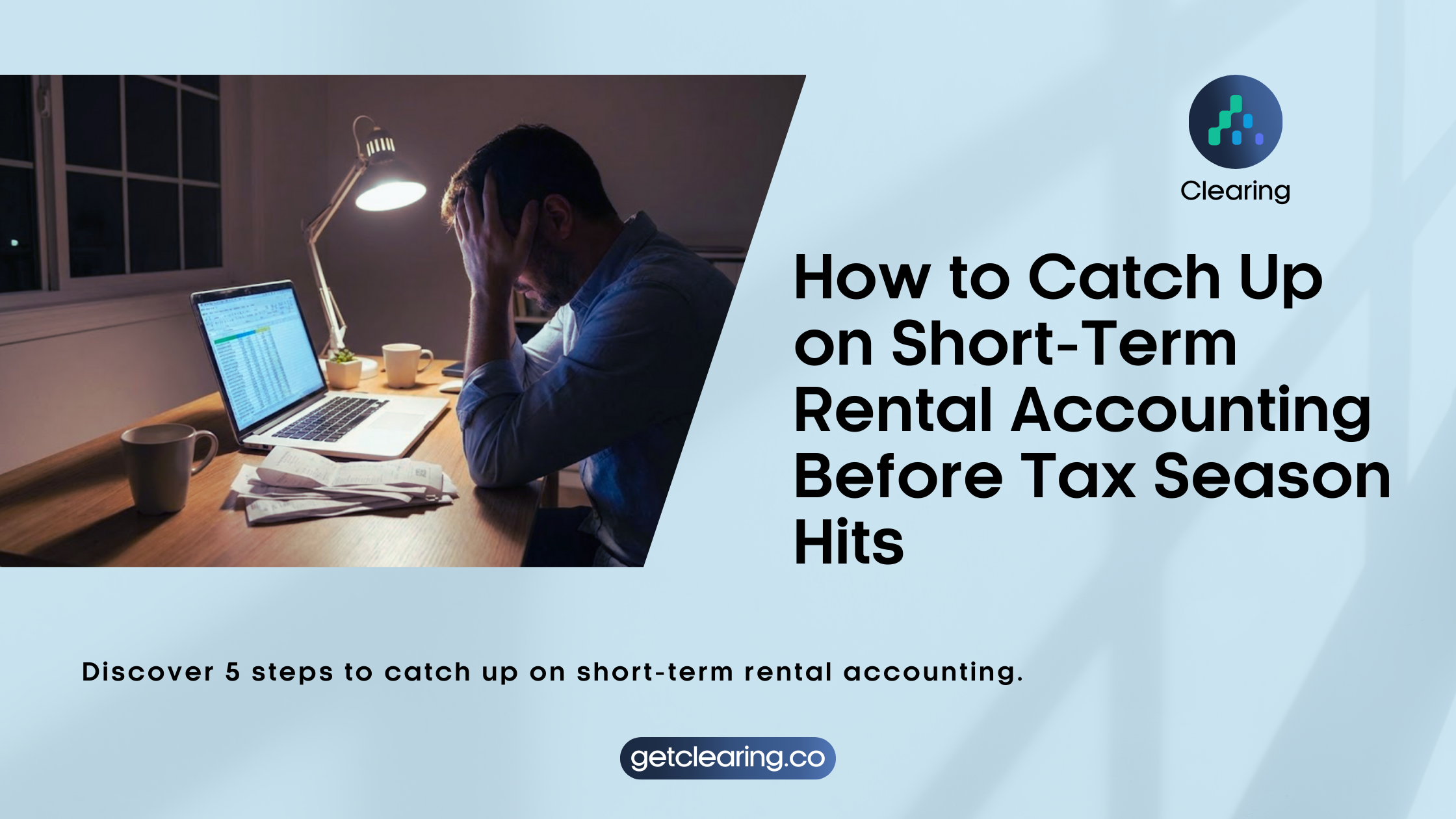
.png)
.png)
.png)
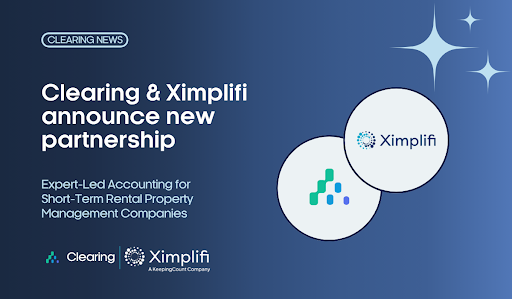
.png)
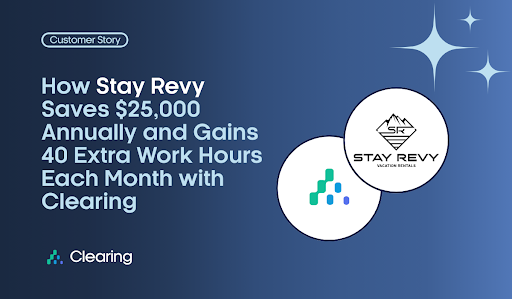
.png)
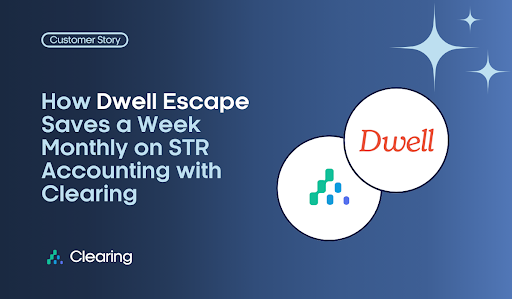
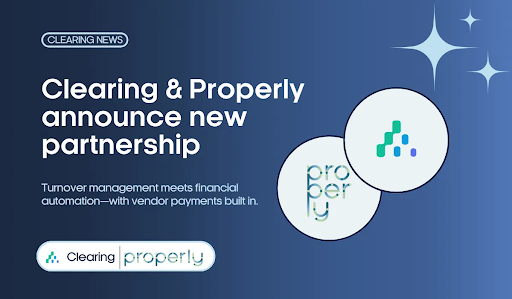
.png)
.png)
.png)
%20(1).png)
%20(1).png)
%20(1).png)
.png)
%20(2).png)
%20(1).png)
%20(1).png)
.png)

.png)
.png)
.png)
%20(1).png)
.png)
.png)
.png)
.png)
.png)
.png)
.png)
%20(1).png)
.png)
.png)
.png)
%20(1).png)
%20(1).png)








.jpg)
%20(1).png)
%20(1).png)
%20(2).png)
%20(1).png)

%20(1).png)
%20(1).png)
%20(1).png)



%20(1).png)
%20(1).png)
%20(1).png)
%20(1).png)
%20(1).png)


%20(1).png)
%20(1).png)
%20(1).png)
%20(2).png)
%20(2).png)



%20(2).png)


%20(2).png)
%20(1).png)
.png)


%20(2).png)
%20(2).png)

.jpg)
.png)
.png)
.png)



.png)
